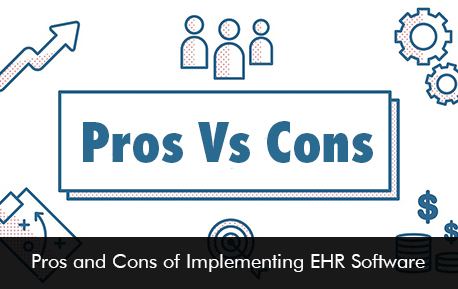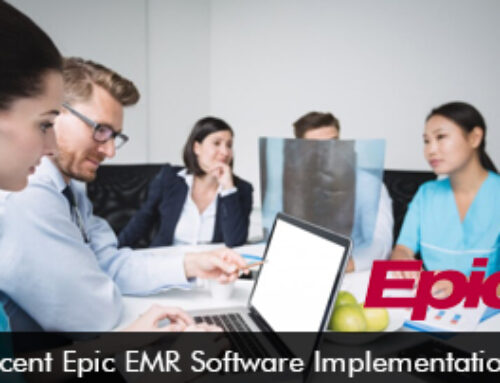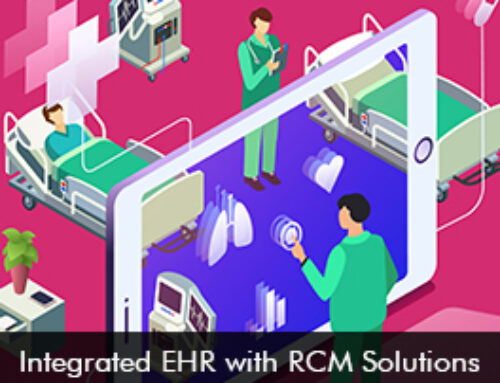Electronic Health Records (EHR) Software System has helped hospital and clinical setups to transition from traditional paperwork to going completely paperless with the automation of administrative, clinical, and financial workflows to enhance productivities.
However, there are always two sides to the coin. Many benefits are known to many of us but there are certain disadvantages when implementing an EHR software. In order to make the best decision for your practice, you should weigh both the pros and cons of the EHR solution.
Benefits of EHR Software
- Reduced Labor – Once a practice setup implements the solutions of EHR Software it makes it easy for the physician to document patient data through effective data entry and charting tools like voice recognition and in-built templates. This helps to simplify and speed up the tedious charting process and supports the clinician to spend more time with the patient to enhance patient outcomes
- Reduced Resource Consumption – When all patient data and history are in one place the need to use paper forms and unnecessary lab orders is reduced. There is no risk of losing and taking care of paper records
- Enhanced Care Delivery – Through Electronic Medical Records (EMR) Software implementation clinicians are able to diagnose and treat patients in a better way. Tools like medication management, safety alerts, and AI tools can help to diagnose patients quickly to provide effective treatment
- Improvements in Patient Engagement – Patient Engagement EMR Software tools like a robust patient portal, two-way communication, and live video sessions may enhance patient engagement. Effective patient engagement is crucial to improve clinical outcomes. By being able to contact your provider effectively and that too from any smart device provides seamless communication. The patient portal platform can also be used by patients to view their histories, medications, and lab results from the comfort of their homes
- Easier Data Collection and Analysis – A streamlined EHR Software interface allows clinicians to view data trends easily and create medical reports faster. The Practice Analytics tools in your EHR Software helps clinicians analyze performance levels and track records with diagram representations
Drawbacks of EHR Software
- Privacy and Security Issues – EHR software systems are exposed to potential threats from hackers which means that sensitive patient data is not 100% secured.
- Implementation takes its Sweet Time – The implementation of the EHR software can take a few months and even a year. The implementation process includes installation and the training time for staff members to use the new system
- Financial Constraints – Before adapting to an EHR software you need to know that the investment is extremely costly and may not be affordable for many clinicians. You need to have the cash to get the complete functionality out of your EHR Software
Is the EHR Right for You?
In order to make an informed decision, it is best that you weigh both the advantages and disadvantages of the software system. If the benefits overweigh then implementing an Electronic Health Records (EHR) Software Solution can bring great efficiencies for your medical practice.
Resources:
Advantages and Disadvantages of Electronic Health Records. (2020). Retrieved 4 May 2020, from https://www.gallaghermalpractice.com/blog/post/advantages-and-disadvantages-of-electronic-health-records
The pros and cons of implementing EHR. (2020). Retrieved 4 May 2020, from https://www.ehrinpractice.com/pros-cons-implementing-ehr.html
O’Connor, S. (2020). Pros and Cons of Electronic Health Records. Retrieved 4 May 2020, from https://www.adsc.com/blog/pros-and-cons-of-electronic-health-records
What are the Pros, Cons of EHR Implementation, Health IT Use?. (2020). Retrieved 4 May 2020, from https://ehrintelligence.com/news/what-are-the-pros-cons-of-ehr-implementation-health-it-use






